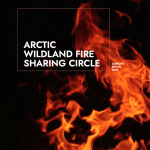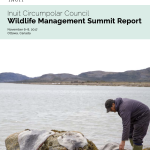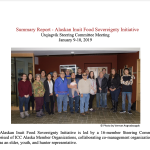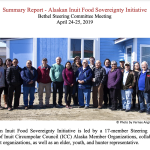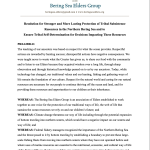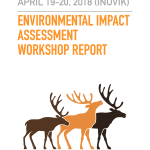Land
Arctic Wildland Fire Sharing Circle Summary Report
The event brought together multiple Working Groups, diverse participants, and a range of projects active and planned for the Arctic in an innovative way to learn, share, and discuss. It fostered a spirit of inclusiveness, and was unique in looking across borders and Working Groups to bring a truly circumpolar lens to wildland fire in the Arctic.
Wildlife Management Summit Report
The Inuit Circumpolar Council (ICC) hosted the Wildlife Management Summit that took place on November 6 to 8, 2017 in Ottawa, Ontario, Canada to deliver on the commitment made in Article 40 of the Kitigaaryuit Declaration, as adopted at the 2014 ICC General Assembly in Inuvik, which, “directs ICC to plan and host an Inuit summit on wildlife management.” The ICC Wildlife Management Summit’s goal was to examine the influence that policies (international, regional, national instruments), environmental change, public perceptions, and changing social economic conditions in the Arctic are having
Summary Report - Alaskan Inuit Food Sovereignty Initiative: Utqiagvik Steering Committee
The Action Plan will empower our people to seek reform and justice as we collectively work towards securing access and management rights over our traditional food resources and to create long-term systematic and policy change that will advance food sovereignty and benefit Inuit communities throughout our four regions of Alaska.
Summary Report - Alaskan Inuit Food Sovereignty Initiative: Bethel Steering Committee
The Action Plan will empower our people to seek reform and justice as we collectively work towards securing access and management rights over our traditional food resources and to create long-term systematic and policy change that will advance food sovereignty and benefit Inuit communities throughout our four regions of Alaska.
Foundations for Improving Resilience in the Energy Sector against Wildfires on Alaskan Lands (FIREWALL)
Balancing Wildfire Risks and Power Outages due to Proactive Public Power Safety De-Energizations
Faults on overhead power line infrastructures in electric power distribution systems (DS) can potentially ignite catastrophic wildfires, especially in areas exposed to high wind regimes, low humidity and dense vegetation. The common practice adopted by electric utilities to build resilience against such electrically-induced wildfires is called public-safety power-shutoff (PSPS): strategies to intentionally and proactively de-energize power line infrastructures to prevent wildfire risks.
Comprehensive Economic Development Strategy 2020-2024
The purpose of the Comprehensive Economic Development Strategy (CEDS) is engagement with stakeholders: local governments, businesses, associations, membership organizations, tribes, and State and Federal agencies to implement the collective best practices for the improvement of the regional economy. The CEDS is to be an evolving, guiding document for SWAMC, providing direction that supports economic development in the region backed by quantifiable data and the insight of our leadership.
Northern Bering Sea Resolution 2014
Resolution for Stronger and More Lasting Protection of Tribal Subsistence Resources in the Northern Bering Sea and to Ensure Tribal Self-Determination for Decisions Impacting These Resources
Environmental Impact Assessment Workshop Report
The goals of the Workshop were threefold: (1) to share information gathered through the Arctic Council project with the communities; (2) gain insights that can be shared with the Arctic Council project on best practices emanating from the Gwich’in Settlement Area; and (3) provide an opportunity to build capacity and facilitate discussions amongst those involved in Environmental Impact Assessments.
